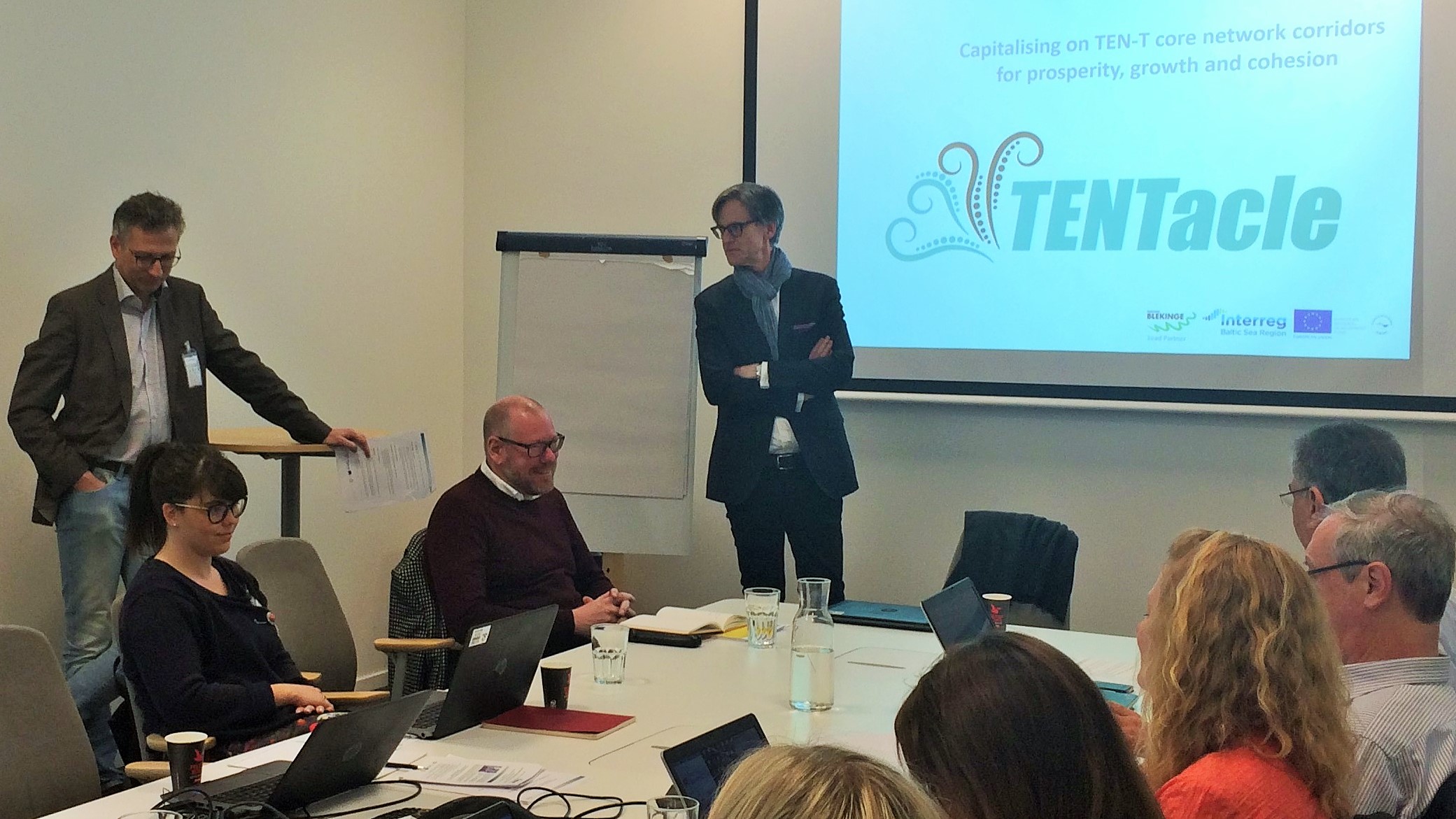Published 7 Jun, 2017
Experts discussed better business stakeholder involvement in TEN-T Core Network Corridor management
Malmö, 23 May 2017
Private stakeholders – such as manufacturers, transport operators and logistics service providers – are vital for the TEN-T Core Network Corridor (CNC) implementation and their efficiency, but their involvement in the corridor governance still shows some deficits. These propositions were the starting point for a lively discussion amongst experts on 23 May 2017 on how to raise the awareness about the CNC and their benefits for private actors. Which structure to use for an improved inclusion of the stakeholders’ interests in the corridor implementation process was another theme.
The setting for the discussion was a seminar arranged in Malmö, Sweden, by TENTacle’s work group (WP 5) on corridor governance. Around 20 representatives of private stakeholder networks, international corridor projects, transport planning authorities, transport ministries, and project partners participated.
The focus of the work package arranging the seminar is the past, present and future of multilevel governance in BSR corridors. By studying the accumulated experience of past projects and initiatives for corridor management processes and by getting an insight of the stakeholder’s current perception of the CNC focusing on geographical and sector variations, the recommendations for the future of the CNCs can be generated. The inclusion of how to better connect the corridors with the northernmost Baltic Sea Region (BSR) areas and the transport networks of the EU Eastern Partnership countries is one such important area of reflection.
One central aim of the seminar in Malmö was to validate the first results as well as to detect the main tasks for the future stakeholder approach. “For achieving our project objectives, we focus on the dialogue with the involved business stakeholders on the one side and the European Coordinators, national and regional transport authorities on the other side at all project stages. This is why your feedback is very valuable for our activities’ quality”, project manager Wiktor Szydarowski, representing the projects’ lead partner Region Blekinge, welcomed the participants.

Short presentations with conclusions and questions introduced the different rounds of discussion in the seminar. The experts confirmed that the private sector still is missing in the CNC governance structures. They suggested to also focus on the group of SMEs because of their role as important innovation leaders when expanding the stakeholder involvement in the future. According to the participants, the definition of a clear goal and the communication of the benefits of involvement is key to convince private stakeholders of an active participation in corridor management. These benefits should be focused on growth perspectives and not only on infrastructure topics.
The “Idea laboratories”, which Christer Löfving from the Swedish Transport Administration presented as new method of stakeholder involvement along the ScanMed corridor, were named as one best-practice example for the design of possible stakeholder groupings. Also, it was recommended that business associations and other private sector clusters and network organisations should be addressed in the core network corridor dialogue instead of single companies.
Another statement of the discussion was that the Member States should strengthen their communication in the CNC-related processes on domestic ground and find means to reach the missing target group of corridor users (e.g. shippers and their organisations). For more efficient information spreading, a better dialogue in existing networks was recommended, with clearly set goals and benefits of the corridor implementation benefits for the various stakeholders. In that regard, DG MOVE representatives need to be involved in national meetings, according to the participants.
The active exchange of views was concluded with the listing of main tasks for the future work in the TENTacle project. “We are satisfied that most of our interim results have been confirmed and we will now carry on our work by analysing the different statements and proposals. These will be taken into account when carrying on our work to develop a policy and action packages for the corridor implementation with all involved parties pulling in the same direction“, were the closing remarks of Björn Hasselgren from the Swedish Transport Administration, coordinator for TENTacle’s corridor governance work package.
The next step on the way to perform this task will be a further validation of the main workshop outcomes by the participants of the joint session of TENTacle and its sister projects Scandria©2Act and NSB CoRe during the EUSBSR Strategy Forum on 14 June in Berlin.
More Information:
Björn Hasselgren,PhD
Swedish Transport Administration
Work Package coordinator Corridor Governance
Tel.: +46-70-7623316
E-mail: bjorn.hasselgren@trafikverket.se